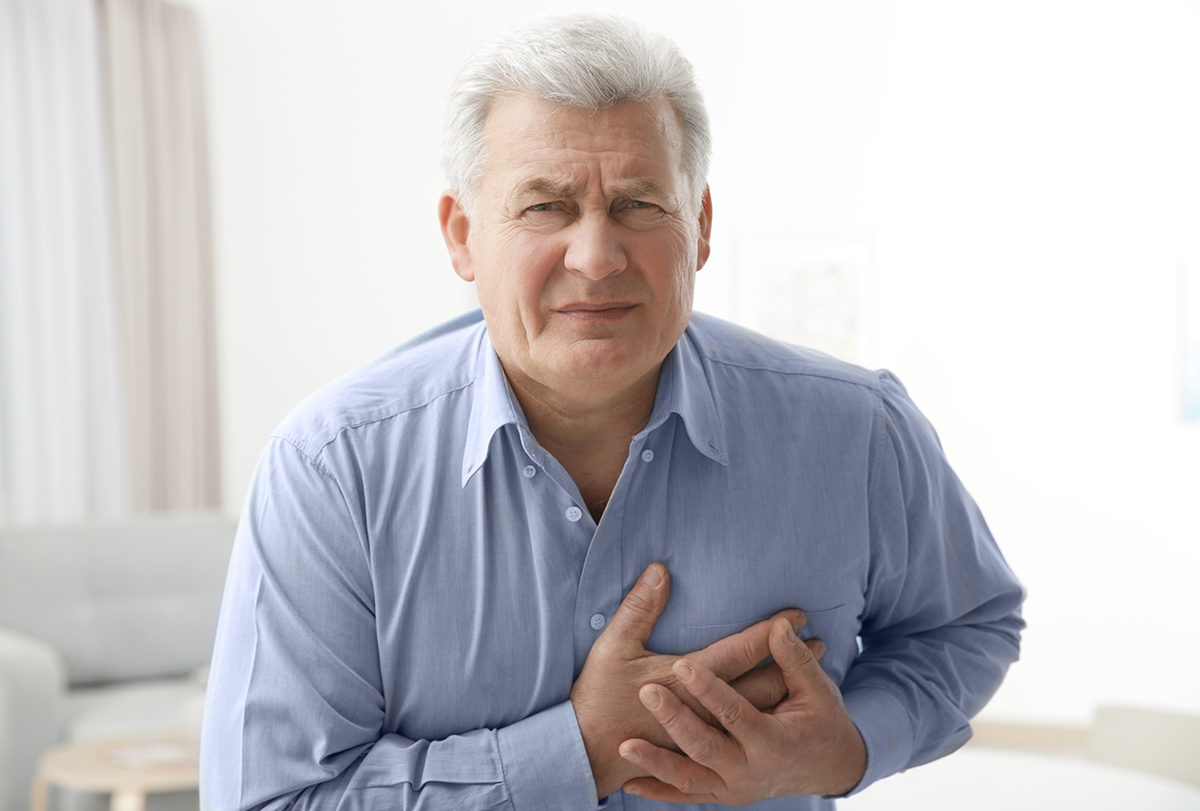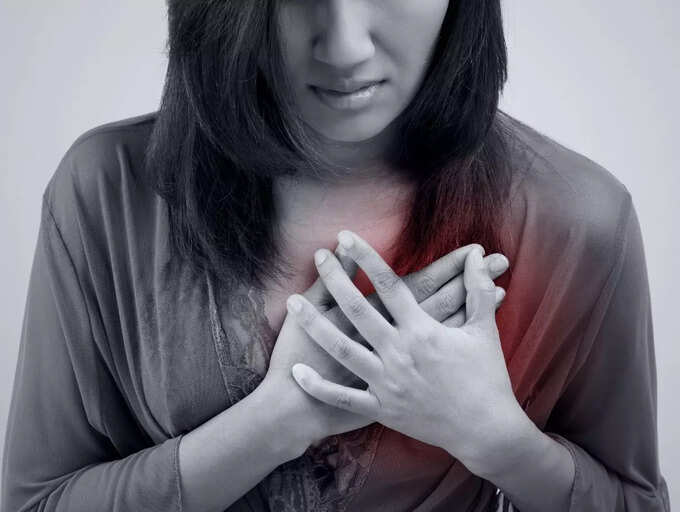Signs of a heart attack aren’t always obvious, and they can often be confused with less serious problems. That’s why it’s important to know what they are and spot them early, since early help can be the key to life.
In this piece, we’ll talk about the top 15 signs of a heart attack so you can be aware and ready.
1. “Pain in the chest
The most common sign of a heart attack is pain in the middle of the chest”. This feeling can go away or stay for more than a few minutes. People often say it feels like pressure, being squeezed, being full, or pain.
2. Trouble Getting Air
Getting short of breath out of the blue, especially when you’re at rest, can be a sign of serious health problems. It’s not normal to find yourself gasping for air while doing normal, easy things like walking in the park, taking a few steps, or even just sitting down.

At first, these times of shortness of breath may seem random and unrelated, but they may actually be signs from your body that something is wrong.
This sudden shortness of breath, which doctors call dyspnea, can be caused by many different health problems, such as heart disease, lung disease, or even some brain problems.
3. Pain in the upper body
Pain or pain can spread from your chest to “other parts of your upper body, like one or both arms, the back, neck, jaw, or stomach”.
4. Warm Sweat
Cold sweats that come on suddenly and for no obvious reason, where you start to sweat a lot even though you haven’t done anything physical, can be a cause for worry. This is especially true when this sign is paired with others, because it could mean a heart attack is coming.
A heart attack, also called a myocardial infarction, happens when the blood supply to the heart muscle is cut off. This usually happens when fatty deposits build up in the coronary arteries. This blockage stops oxygen and food from getting to the heart muscle, which can damage or even kill the heart tissue.

5. Unusual Fatigue
If you feel tired after doing easy things like walking up stairs or carrying groceries, it could be a sign of heart trouble.
6. Feeling dizzy or lightheaded
Dizziness, falling, or a constant feeling of being lightheaded that you can’t explain can sometimes be a sign of a more serious health problem, like a heart attack.
Most of the time, these signs happen because the brain isn’t getting enough blood, which can happen when the heart can’t pump blood well. During a heart attack, this can happen if the blood flow to part of the heart is cut off, making the heart less able to work as a whole.
But these signs aren’t just related to heart attacks; they can also be signs of other health problems. So, it’s important not to jump to conclusions too soon and instead get medical help right away for a good diagnosis and treatment.

7. Being sick or throwing up
People are often surprised to learn that nausea, bloating, heartburn, or stomach pain can be signs of a heart attack.
8. An Uneven Heartbeat
A few minutes of having an uneven heartbeat could be a sign. If it comes with shortness of breath, feeling dizzy, or feeling weak, you should call 911 right away.
9. Fear or the feeling that something bad is going to happen
Anxiety is a common and often unavoidable part of life, but for some people, it can get out of hand and cause strong bouts of fear or dread.
This is similar to a panic attack because it often starts suddenly and causes a lot of worry. Physically and mentally, the experience can be overwhelming. People often describe it as a deep sense of impending doom that takes over the person, even though there doesn’t seem to be any immediate danger.
These periods of high anxiety can be caused by a number of things, such as worry, a traumatic event, or a mental health condition like Panic Disorder or Generalized Anxiety Disorder that is already there.
The symptoms come on quickly and out of the blue. They can be different for each person, but they usually include a fast heartbeat, shortness of breath, shaking, sweating, and a strong feeling of fear or dread.
10. Legs, ankles, and feet that are swollen
Edema is swelling caused by too much fluid in the body. It can be caused by heart failure, which can happen after a major heart attack.
11. Cough that won’t stop
A cough that lasts for a long time and makes white or pink mucus can be a sign of heart failure, which can happen after a heart attack.
12. Not getting hungry and feeling full
A heart problem can also cause a person to lose their appetite or feel full after eating a small amount.
13. Wheezing or shortness of breath that doesn’t go away
Wheezing or gasping for air is a dangerous medical sign that could be a sign of pulmonary edema, which is when fluid builds up in the lungs. This sign is serious because pulmonary edema is often caused by heart failure, which is when your heart doesn’t pump blood as well as it should.
In terms of heart health, having lung edema could also be a sign that a heart attack is about to happen.
When your heart can’t pump blood well, fluid can back up into your veins, build up in your body, and finally make your lungs too full to breathe. Because fluid fills the lungs instead of air, this process can make you wheeze or gasp for air.
14. Sleep Disturbances
Heart trouble could cause you to have trouble sleeping or wake up often at night to pee.
15. Weakness for No Reason
Some people feel very weak for no reason in the days or even weeks before they have a heart attack.

Even though it’s important to know these signs, keep in mind that everyone’s heart problems can be different. Some people only feel a little bit of pain, while others have a lot of pain. Some people have a lot of signs, while others have few.
If any of these things happen to you or someone close to you, call your local emergency number right away. When it comes to heart attacks, time is of the importance, so it’s better to be safe than sorry.
Remember that a healthy heart starts with good habits: a balanced diet, regular exercise, keeping your blood pressure and cholesterol levels, and not smoking are all things that can help make your heart healthier.
“It’s also important to see your doctor regularly, especially if” you have a history of heart disease in your family. Stay alert, stay informed, and take care of your heart!
Disclaimer: This post is only meant to give information. It is not a replacement for medical advice, evaluation, or treatment from a doctor.
